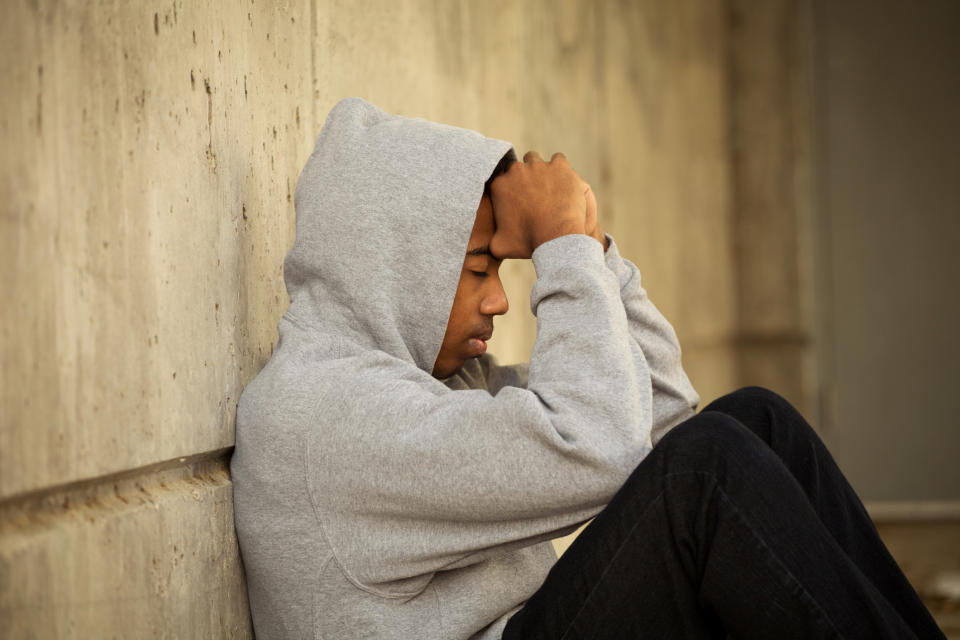Michelle Obama suffering from 'low-grade depression': What is it and what are the symptoms?

Michelle Obama has revealed she is suffering from “low-grade depression” due to worries over the coronavirus pandemic, racial injustice and the Trump administration.
The former First Lady, 56, made the remarks in the latest episode of The Michelle Obama Podcast released on Spotify on Wednesday.
Mrs Obama said she has been struggling with her exercise routine and sleep.
“I’m waking up in the middle of the night because I’m worrying about something or there’s a heaviness,” she admitted.
“I try to make sure I get a workout in, although there have been periods throughout this quarantine where I just have felt too low.”
She went on to say she had been going through “those emotional highs and lows that I think everybody feels, where you just don't feel yourself”.
“These are not- they are not fulfilling times, spiritually,” she said.
“I know that I am dealing with some form of low-grade depression.
“Not just because of the quarantine, but because of the racial strife, and just seeing this administration, watching the hypocrisy of it, day in and day out, is dispiriting.”

Read more: Half of mums suffering poor mental health due to childcare responsibilities in lockdown
What is ‘low grade’ or mild depression?
Like Michelle Obama, for many people concern surrounding the COVID-19 pandemic and other global problems have had a knock-on impact on mental health.
“We know that many people are struggling with their mental health right now and there are lots of different reasons for this, such as concerns about our health, job security and finances, or worrying about the wellbeing of our loved ones,” explains Stephen Buckley, Head of Information at Mind.
“It’s normal to feel anxious in times of uncertainty, but if you’re experiencing symptoms of depression and anxiety that last longer than two weeks, keep returning, and have an impact on your daily life, it’s worth speaking to someone you trust, such as a friend, family member or health professional.”
According to Dr Niall Campbell, consultant psychiatrist at Priory’s Roehampton Hospital, depression comes in different scales of seriousness, from feeling unhappy at the lower end of the scale, to feeling very seriously ill.
He suggests those who suspect they may be suffering from low grade depression should look out for feeling sad, not enjoying things you normally do, feeling a bit hopeless and negative about the future, and more irritable, not sleeping well, and maybe drinking more.
In terms of being able to tell the difference between low grade depression and more severe forms of depression, Buckley says it may be necessary to seek professional advice.
“A health professional can carry out an assessment to help decide whether your symptoms of depression are mild, moderate or severe based on the type, severity, length, and frequency of the reported symptoms, and the extent to which they affect your day-to-day life,” he says.
Read more: More people are using exercise to help manage their mental health

What are the symptoms of depression?
Some of the symptoms of mild depression are similar to those described by Michelle Obama when discussing her own recent experiences of “low grade depression”.
“If you experience mild depression, you might find that you get less enjoyment from the things you previously enjoyed, you might feel like you want to withdraw from loved ones, you might have some trouble eating, sleeping and exercising, or, conversely, do these things more than you normally would,” Buckley says.
For severe depression, someone is likely to be experiencing at least some of the following: suicidal thoughts, hallucinations, delusions and have them lasting for periods of 6 months or more.
“If you’re experiencing severe depression, you might be thinking about or doing things to harm yourself or struggling with suicidal thoughts,” Buckley adds.
“You might also experience hallucinations - seeing or hearing things that others can’t – and delusions- experiencing an altered state of reality. No matter what kind of depression you have, treatments are available, and everyone with a mental health problem deserves to be able to access the help that they need.”
Read more: The pursuit of happiness may cause depression
What you can do to help
So what can people do if they think they could be suffering from “low grade depression” like Michelle Obama?
“If your GP thinks that you might be experiencing a common mental health problem, like depression or anxiety, they can suggest a range of treatment options,” Buckley adds.
“It’s important to remember that what works for one person may not necessarily work for you, and it’s usually a combination of treatments that work best.
“This could include medication, talking therapies like counselling and self-care techniques such as mindfulness, eating a healthy balanced diet and taking plenty of physical exercise.”
While taking medication for depression can be helpful for some people, it isn’t always the best option for those suffering with mild depression.
“While antidepressants can be beneficial for some people, they are not the solution for everyone experiencing depression and, according to NICE guidelines, they shouldn’t usually be used as the first-line treatment for mild depression,” Buckley explains.
“Psychiatric medication also comes with some potential side effects, which you should consider and discuss with your GP before you begin taking anything.”

But talking therapies could be helpful for those suffering from mild depression.
“Talking therapies involve talking to a trained professional about your mental health, including your thoughts, feelings and behaviour,” explains Buckley.
Additionally Buckley says self-care techniques and general lifestyle changes can help manage mental health and can be beneficial in preventing mental health problems developing or getting worse.
“There are lots of things you can try, for example increasing physical activity or changing your diet, as our physical health and mental health are closely linked,” he explains.
“Exercise and physical activity release feel-good hormones, such as serotonin, and there is evidence to suggest that exercise and physical activity can ease feelings of depression.”
Buckley says benefits can be felt with even relatively small amounts (15 – 30 minutes) of regular physical activity or exercise that you can do safely and enjoy.
“Improving your diet can also help improve your mood,” he adds. “Getting your five-a-day and enough protein, eating regularly, keeping hydrated and regulating your caffeine intake can all be beneficial.”
Overcoming the mental health stigma
Despite efforts to increase conversations surrounding mental health, some stigma still remains.
“Depression is not always very well understood by friends, family, and colleagues,” explains Dr Andrew Iles, consultant psychiatrist at the Oxford Wellbeing Centre.
“There remains, despite efforts to raise awareness, a stigma around mental illness and depression is no exception.
“Specific initiatives to get people talking are attracting increased attention but there is much left to do to raise the public perception of mental illness on a par with physical illness such as asthma and diabetes.”
But the revelation that someone as high profile as Michelle Obama is struggling with their mental health can only be a step forward for helping to reduce the stigma that still surrounds conditions such as depression.
“It is a very good thing that people, especially young people, see someone of the status of Michelle Obama, who is widely respected, talking about mental health,” Dr Campbell adds.
For more information about depression and other mental health problems, visit Mind’s website at www.mind.org.uk or phone our Infoline on 0300 123 3393 (Monday-Friday, 9am to 6pm).



